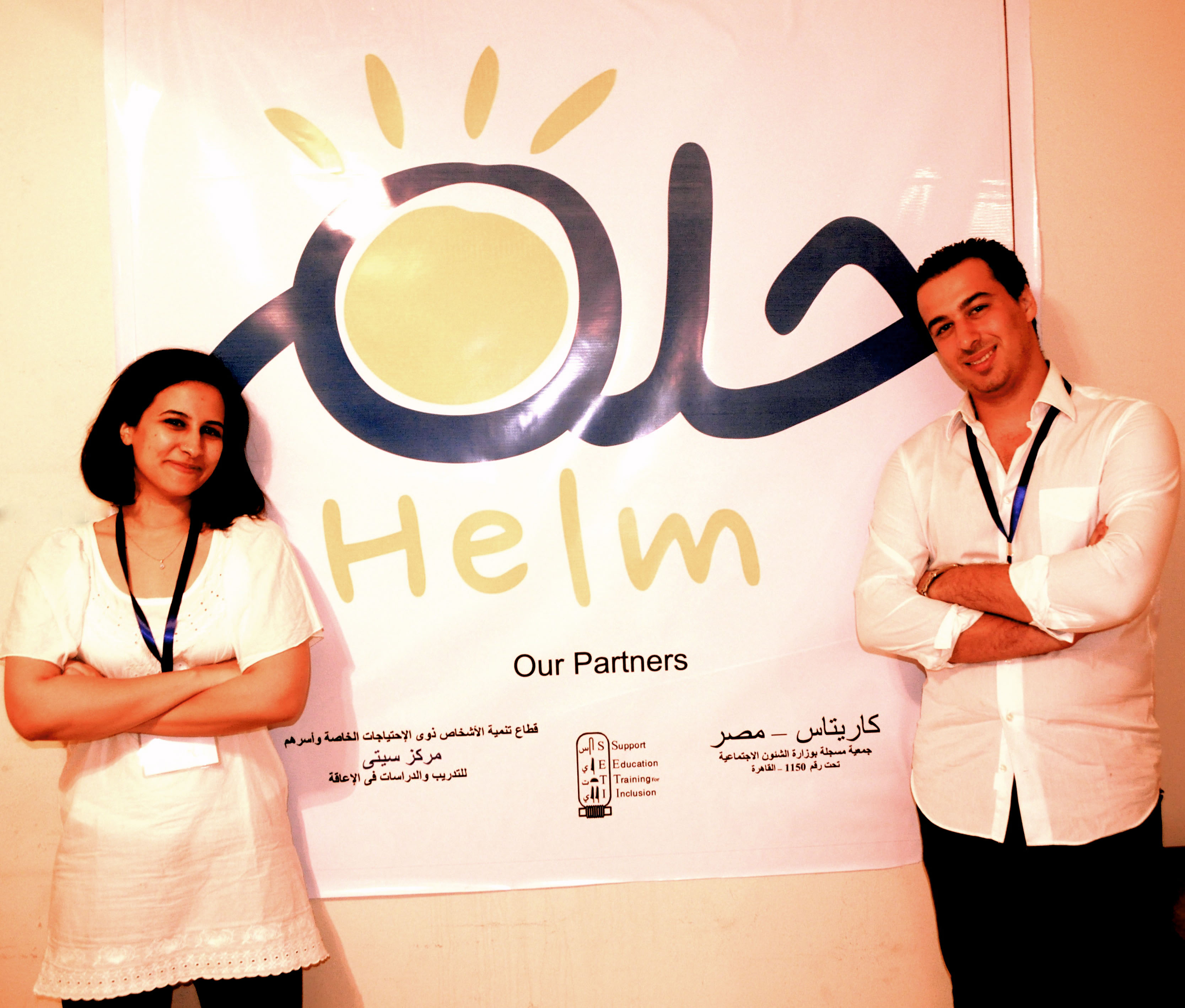 There are 10-15 million people in Egypt currently living with a mental or physical disability. As a nation, Egypt is ill-equipped to provide the support people with disabilities desperately need. From functioning elevators and on-ramps for wheelchairs to public transportation, education, jobs and integration; Egypt fails to impress.
There are 10-15 million people in Egypt currently living with a mental or physical disability. As a nation, Egypt is ill-equipped to provide the support people with disabilities desperately need. From functioning elevators and on-ramps for wheelchairs to public transportation, education, jobs and integration; Egypt fails to impress.
Enter Helm. The name translates to ‘Dream,’ an organisation aiming to one day provide adequate care and aid to the millions of Egyptians suffering from disabilities so they may become productive and integrated members of society. As part of their mission statement, Helm wishes to facilitate the employability process and increase job opportunities by connecting people with special needs with employers, and helping to launch and support for-profit businesses with inclusive employment policies. The idea behind supporting for-profit enterprises is to ensure that both new and existing businesses can flourish, setting a good example for the rest of society, while proving that such projects can operate as a profitable business. “We want to stop businesses from hiring people with disabilities because they feel pity for them,” the co-founder of Helm, Amena El-Saie, told the Daily News Egypt. “Instead, what we want to do is show people that those with disabilities can be an asset to society and the economy, not a burden.”
As part of the 1975 Rehabilitation of Disabled Persons Act, a law passed by the government to ensure that people with disabilities are not ostracised from their communities, any business with 50 or more employees must have no less than five per cent of their total workforce consist of people with disabilities, as defined by the act. Despite the existence of the law, there is a lack of enforcement and organisations that aid the disabled.
Helm acts as an intermediary, aiming to be the missing link between employees and employers, either directly or through centres that specialise in a specific disability. They believe that every person with a disability can be well suited for work, with a natural specialty that can be utilised with every disability. “The deaf and mute for example, work best in factories because of their high-level of concentration, making them more efficient overall,” El-Saie said.
El-Saie believes that families in Egypt who have children with disabilities often do not engage in family activities in public out of fear their children would get teased or ostracised. The first for-profit project to take flight will be MASRY, an entertainment cultural centre that will provide visitors with full-time professional care for children with special needs as well as various shows including performers with disabilities, such as the Al Nour Wal Amal Association’s blind girls’ band. The centre will also have a eatery serving traditional Egyptian food and a store where contemporary Egyptian products created by people with disabilities from all over Egypt will be sold. The restaurant will have dedicated ‘dine in the dark’ nights, where blind people are put to work. Blind employees will be given the training needed to be able to take orders and deliver food.
Helm was conceived last year, and is still awaiting the finalisation of their licence. In order to ensure Helm has the funding to begin their first project, the Caritas SETI centre in Egypt is providing the organisation with all the necessary staff training to deal with each individual type of disability. The Maadi Advance School and Centre has also rallied to the call, advising Helm when the need arises.
“Our project is all about inclusion,” El-Saie stressed. “We want to ensure their inclusion in society, in all aspects of society.”




